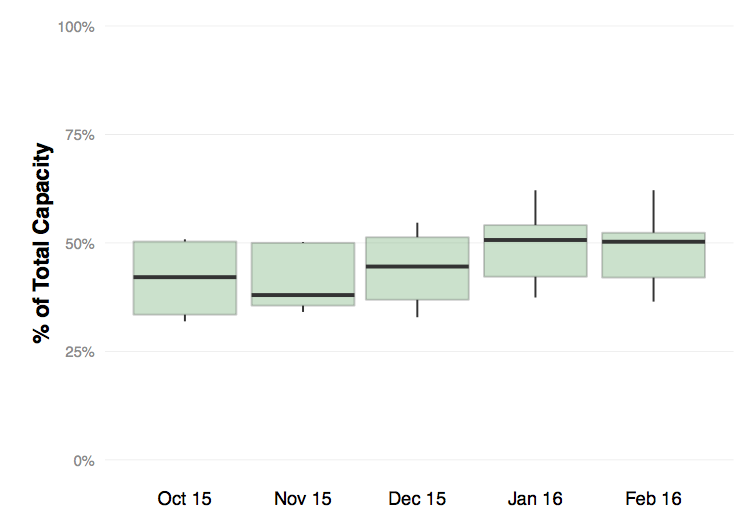Measuring the performance of broadband networks is an important area of research, and efforts to characterize the performance of these networks continues to evolve. Measurement efforts to date have largely relied on inhome devices and are primarily designed to characterize access network performance. Yet, a user’s experience also relies on factors that lie upstream of ISP access networks, which is why measuring interconnection is so important. Unfortunately, as I have previously written about, visibility about performance at the interconnection points to ISPs have been extremely limited, and efforts to date to characterize interconnection have largely been indirect, relying on inferences made at network endpoints.
Today, I am pleased to release analysis taken from direct measurement of Internet interconnection points, which represents advancement in this important field of research. To this end, I am releasing a working paper that includes data from seven Internet Service Providers (ISPs) who collectively serve approximately half of all US broadband subscribers.
Each ISP has installed a common measurement system from DeepField Networks to provide an aggregated and anonymized picture of interconnection capacity and utilization. Collectively, the measurement system captures data from 99% of the interconnection capacity for these participating ISPs, comprising more than 1,200 link groups. I have worked with these ISPs to expose interesting insights around this very important aspect of the Internet. Analysis and views of the dataset are available in my working paper,which also includes a full review of the method used.
The research community has long recognized the need for this foundational information, which will help us understand how capacity is provisioned across a number of ISPs and how content traverses the links that connect broadband networks together.
Naturally, the proprietary nature of Internet interconnection prevents us from revealing everything that the public would like to see—notably, we can’t expose information about individual interconnects because both the existence and capacity of individual interconnects is confidential. Yet, even the aggregate views yield many interesting insights.
One of the most significant findings from the initial analysis of five months of data—from October 2015 through February 2016—is that aggregate capacity is roughly 50% utilized during peak periods (and never exceeds 66% for any individual participating ISP, as shown in the figure below. Moreover, aggregate capacity at the interconnects continues to grow to offset the growth of broadband data consumption.

Distribution of 95th percentile peak ingress utilization across all ISPs.
I am very excited to provide this unique and unprecedented view into the Internet. It is in everyone’s interest to advance this field of research in a rigorous and thoughtful way.
